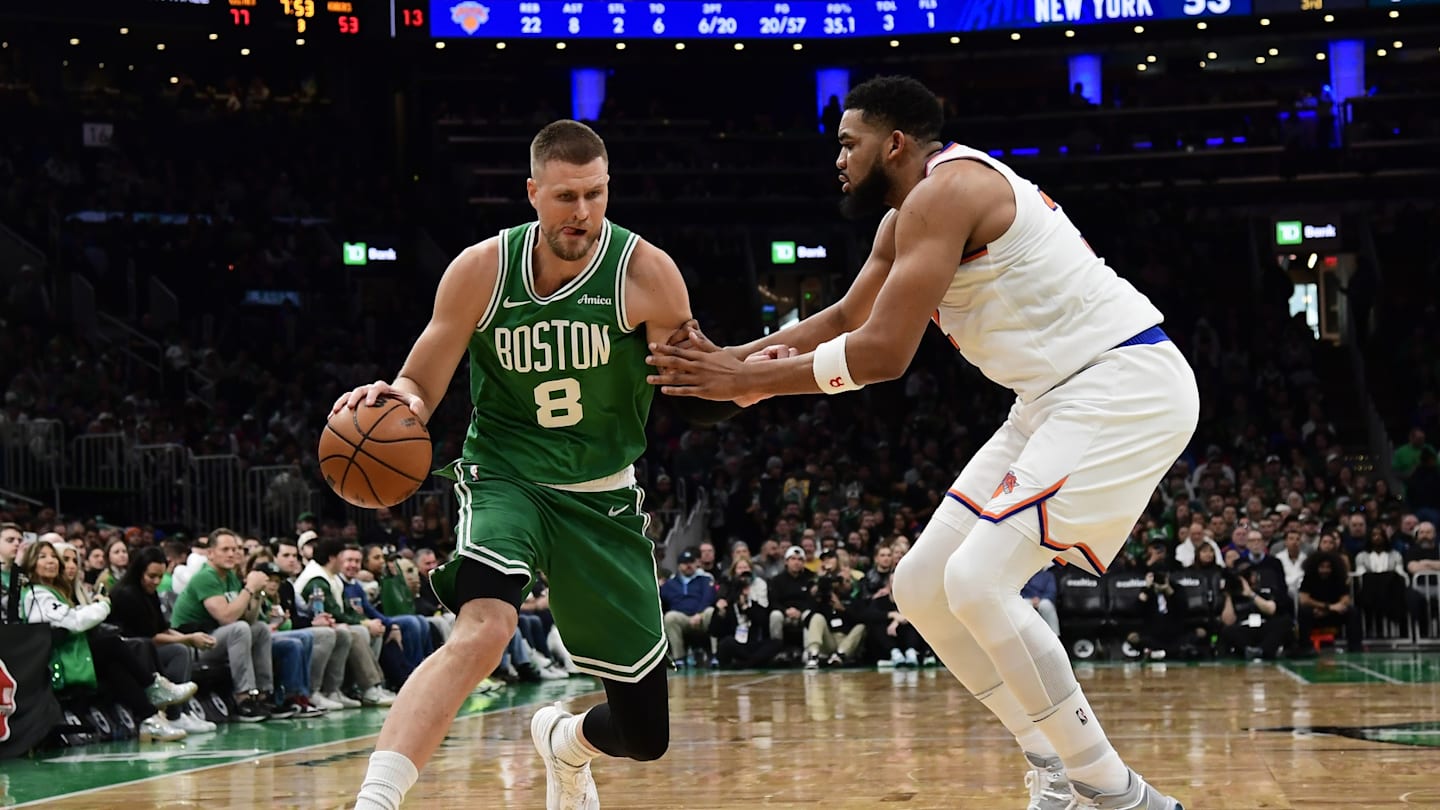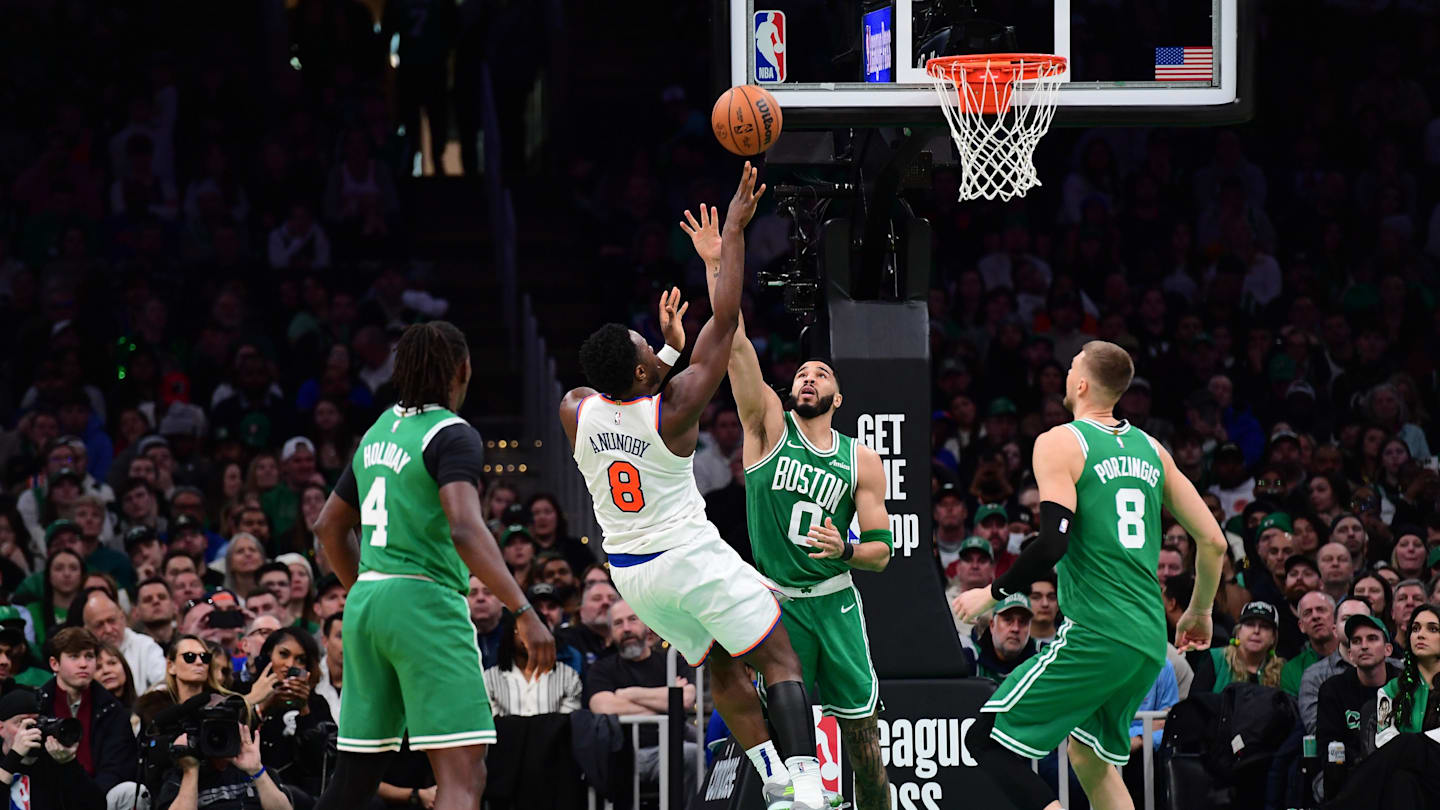Rockets’ sputtering offense in NBA Cup semifinal highlights a rise in expectations

LAS VEGAS — Sixty-eight seconds.
For 68 prolonged seconds, Houston Rockets center Alperen Şengün could only watch from the sidelines as his team gradually let go of the rope at the most inopportune time.
The large video screen hanging from the ceiling of T-Mobile Arena indicated the semifinal was anything but over — the Oklahoma City Thunder were clinging to an 84-79 lead with more than seven minutes left in the fourth quarter.
But as Şengün made his way to the scorer’s table, desperate to make an impact — or at the very least escape a scoring slump — his body language indicated he had seen this movie before, many times.
For 68 seconds of game time, Şengün watched as the Rockets labored to generate positive offensive possessions. A missed open 3 here, a turnover there. Compounding errors.
At the other end, the Thunder, whom the Rockets had done an admirable job of defending for most of the game, were creating advantages out of minimal mistakes.
And just like elite teams do, they punish. They silence. It took Houston a little over a minute for them to look up at the video screen and realize that a 5-point deficit had ballooned to 13. Game over.
Şengün’s emotions boiled over. “F—!” he yelled, slapping both hands against his sides as he sulked back to the bench.
The collective disappointment from the Rockets players and the coaching staff stemmed from the missed opportunity. In actuality, it’s been years since Houston was in a position to play in meaningful games, and against a Thunder team that is expecting an NBA Finals run, that this team has stood up to competition three times this season is commendable. The postgame pain only further highlighted their internal growth and rise in expectations.
But this is a team that seemingly went from pariah to prideful overnight. The Rockets didn’t come to Vegas for moral victories. They didn’t fight and claw through the group stages and quarterfinal, getting past a bitter rival in the process, only to fall flat on their face instead of standing tall. The beauty of the NBA Cup was exposure on a national stage, giving an audience a peek behind the curtain into the work of gritty teams like the Rockets do behind closed doors. Instead, it was just a two-sided reminder of the defensive greatness juxtaposed with offensive shortcomings they’re fighting to eradicate.
“Sometimes, it comes down to making shots,” coach Ime Udoka said following Houston’s 111-96 loss. “Especially in the first half, we guarded them well enough — held them to 41 — and if you make a few shots, you’re probably up double figures. The only way we like to attack is: get stops and get out (and run). That’s when we built our biggest lead. Individuals gotta shoot the ball a little bit better — you put a lot of pressure on your defense when you’re not making shots like that.”
The Rockets missed a stunning 35 3s — the majority of which were open — and coughed up the ball 16 times. Because they were indeed going up against the league’s top-ranked defense, a good chunk of Houston’s offensive miscues were understandable. Expected, even.
But Saturday night wasn’t an outlier. If anything, it was a reinforcement. According to NBA.com tracking data, the Rockets are 25th in 3-point percentage on “open” 3s where the nearest defender is at least 4 to 6 feet away. Move out further and the Rockets get worse — third-worst in the NBA — on “wide-open” 3s, where the closest defender is 6 feet or more away.
Oklahoma City, which has built its success on defensive versatility — equal parts confidence and arrogance — felt extremely comfortable keeping all five players below the perimeter to swarm the paint. The Thunder threw some different looks at the Rockets in the semifinal; zone, box-and-one, traps and blitzes. But the recurring theme in OKC’s defensive coverage was trust in their aggressive scheme and trust in Houston’s inability to punish them from the shots they essentially dared them to take. The Rockets average 35.6 3s a game but that number skyrocketed to 46 on Saturday night.
They won’t win many games where the starting backcourt of Fred VanVleet and Jalen Green combine to shoot just 2-of-19 from downtown but on paper, they have some players that should be able to shoot at least league average from distance. It’s just not clicking right now.
“I feel like it’s not hitting shots, honestly,” Jabari Smith Jr. said by his locker. “If we were making shots, it wouldn’t be a question or issue. We’d be winning. They’re open looks. We’re wide open and those are the people we want taking those shots. They’re just not going in. It’s not something that you have to fix — you’ve seen what it looks like when we make shots.”
In December alone, the Rockets have failed to crack 100 points three times already. Houston is a fantastic defensive team. They rebound with the best of them and are dynamic when they get out in transition off of defensive stops. But their second lever is faulty, which points to a potential stylistic issue. Per Cleaning the Glass, the Rockets are just 25th in half court points per 100 plays (90.5) despite being the NBA’s best offensive rebounding team. (Houston won the offensive rebounding battle 19-4 but turned those into just 19 second-chance points.)
When Udoka mapped out the Rockets’ offensive improvement at the tail end of the 2023-24 season and reinforced it during training camp and preseason, his plans were centered around playing to his roster’s strengths — speed, athleticism and spacing. Most NBA teams fantasize about “pace and space,” but Houston, at least on paper, is one of the few teams fully equipped to act on those plans.
But at the midway point in December, the Rockets are middle of the pack in pace and are near the bottom of the barrel in outside shooting. At times, it almost looks as if Houston is still trying to figure out how to play off of each other and where their best actions should come from — which shouldn’t be the case for a team with a year of continuity under its belt and playoff hopes.
Before Saturday’s game, Udoka flipped his typical practice style, working on offense before moving on to the other side of the ball, pointing to an understanding of the work that must be done offensively.
There are multiple creators, finishers and shooters on the roster but if their offense looks this disjointed as it has on numerous occasions, there might need to be a return to the drawing board. Houston’s starting lineup of VanVleet, Green, Smith, Şengün and Dillon Brooks has played over 300 more minutes than Udoka’s next most-used lineup and while they’re still a net positive (+3.6), their offensive rating is on par with a bottom-five team. Udoka historically leans on his starters heavily, which gives more impetus to hammering out the half court kinks.
VanVleet has often spoken about his relationship with Udoka, highlighting their ability to have honest discussions and give feedback based on what the on-court product looks like. But some tweaks need to be made. Perhaps it’s as simple as inserting second-year wing Cam Whitmore back into the equation. Whitmore shot nearly 36 percent from 3 as a rookie on decent volume and has played well during his frequent G League trips.
“What I will say publicly is we gotta figure it out,” VanVleet said. “We gotta get better offensively. Other than that, I’m not really going to talk about what we want to do here. Coach can probably give you a better answer than that. My job as a point guard is to figure out how to get this team to perform better and it starts with myself. Other than that, everything else will be ironed out behind the scenes, and find something that feels better that we can get more flow and consistency.”
(Photo of Alperen Şengün: Ethan Miller / Getty Images)
Related
NBA: Mark Cuban says he would have asked for more…
Feb 13, 2025; Dallas, Texas, USA; Mark Cuban laughs during the second half of the game between the Dallas Mavericks and Miami Heat at American Airlines
NBA Scout Reveals Why Celtics Can Easily Beats Knicks in…
The Boston Celtics are one of the teams who are expected to be a contender at the end of the season. They are the defending NBA champions, so they feel like the
Nikola Jokić gives peak Nikola Jokić interview with Scott Van…
Nikola Jokić is still rewriting the record books — and treating it like just another day at the office. In a 149-141 overtime win over the Phoenix Suns
Knicks’ Struggles vs. NBA’s Elite Explained
The New York Knicks are one of the best teams in the NBA, but as of late, they have been defined more by their struggles than their triumphs.The Knicks are 0-7











